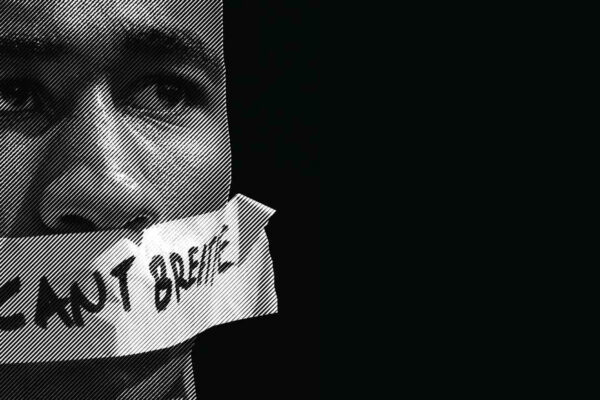The killing of George Floyd sparked outcry nationally and in Nebraska, adding new energy to calls for police reform.
Nebraskans have been clear about the need to end police brutality, redistribute funding to alternative community-based solutions to crime, and shine a light on excessive force and police practices that are unacceptable in our state and everywhere.
Police reform and racial justice must be priorities when state senators convene next year. Currently, state leaders are considering several proposals that could make our state more just and safer for everyone.
Here’s the breakdown:
Civilian Oversight
A proposal regarding civilian oversight could require each city that has a police department to have a citizen oversight board. This board would oversee and evaluate police standards and practices. They’d also investigate complaints against police officers made by civilians. Effective civilian oversight relies on key features:
- Independence. The oversight should be completely independent from the police department they monitor and somewhat independent from elected officials.
- Community driven. The oversight should be made up of people who are statistically more likely to come in contact with police or be impacted by policing. This would include young people and people of color.
- Empowered. The oversight should have power to make change. They should have been provided with investigatory authority in order to meaningfully respond to complaints against police officers or departments. They should also have a big enough budget to ensure they can do their job.
- Transparent. The oversight should be transparent and responsive to the public. Meetings should be public and investigative materials should include a report accessible to the public, along with other reports.
Statutory Reform for Use of Force
In addition to oversight, the Nebraska Legislature could enact changes related to policing power and use of force. We highlighted several areas of focus.
- Limitation on chokeholds and strangleholds. This is an obvious and logical limitation to be implemented. The use of chokehold restraints should only be acceptable in instances where someone is actively in a life-threatening/serious bodily injury situation, instead of only actively resisting.
- Duty to intervene. We need a clear, statewide directive that officers have a duty to intervene when another officer uses unreasonable or excessive force. Currently, there are no clear provisions regarding the duty or obligation to intervene. We must explicitly and clearly state that officers have such duties.
- Enact statutory provisions relating to use of Tasers. Since 2001, over 500 people in the US have died after police used Tasers on them. There are currently no statutory provisions relating to the police use of Tasers. We support a provision to limit their use so police could only use Tasers in actual assaultive and life-threatening situations. Tasers shouldn’t be used against people who are just resisting arrest but not presenting any safety threat. There should also be guidelines banning their usage against certain demographics, such as children or the elderly.
Police Militarization
Neighborhoods are not war zones and our city shouldn’t be treating residents and protesters as wartime enemies.
- Restraint on “no-knock” search warrants. SWAT teams or aggressive entry searches should only happen in situations where there’s an imminent threat; not just to execute search warrants.
- An “exclusion” rule for police abuse. This would be a simple, yet powerful tool to check unreasonable searches. State senators should pass a rule that would exclude evidence being used against defendants if the evidence gathered was done in an unreasonable or excessive manner. For example, if the police failed to knock and announce their presence, or if they entered the home in a dangerous manner. This would discourage excessive and aggressive police actions.
- Requiring transparency and oversight. The state should require law enforcement agencies to record specific data on the use of SWAT or tactical teams. Agencies would also report data on the use of military-style weapons and their activation and deployment. Records could be collected that identify the purpose for the use of these weapons/team, individuals impacted by the deployment, including if they were suspects or bystanders, and a listing of items seized. This would provide policymakers and citizens with some measure as to the severity of military-style policing.
Racial Disparity in Policing
Systemic racism can oftentimes be subtle and underlie the policies and practices that exist in our state and local governments. People of color are overrepresented at every stage of the criminal justice system.
- Traffic Stops. One of the biggest examples of racial disparity in criminal justice can be shown through traffic stops. For example, across Douglas County, Black drivers were stopped in 22.7% of traffic stops, even though Black drivers were only 11% of all drivers. Policymakers should continue to make changes in order to minimize these disparities.
- Arrestees and Pretrial Detainees. In early October of 2020, 50% of all pretrial detainees in Douglas County Jail were Black. The Legislature needs to continue bond reform efforts as the current system shows significant racial impact.
Limitation on Police Surveillance
- Police are watching, and even following, citizens for doing nothing more than petitioning for change. We live in a democratic society where people should be free to speak and protest without fear of retaliation by police.
- Surveillance. Police should be transparent about surveillance tools, including facial recognition technology, Automated License Plate Readers, Sting Rays and other devices.
When senators come back, they need to be ready to tackle these major racial justice issues. Nebraskans value and need systemic reform at every level to alleviate these disparities. We’re proud to stand on the right side of history and provide real, thoughtful solutions to address these needs.

